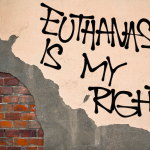Australian Territories Could Be Given the Right to Introduce Euthanasia Laws

Two Federal Labor backbenchers have introduced a Bill which could end to the Commonwealth’s paternalistic ban on the Territories legalising the right to die within their borders.
If passed, the will give the territories greater autonomy in the area of euthanasia as well as others where the Federal Government has exerted paternalistic influence on the jurisdictions – allowing them to better determine their own rules.
Background
On 22 February 1995, the Chief Minister of the Northern Territory introduced the Rights of the Terminally Ill Bill into the Territory’s Legislative Assembly, as a Private Member’s Bill.
On 25 May that year, the Assembly passed the Rights of the Terminally Ill Act 1995 (the Act) by 15 votes to 10.
The Act, which was given assent on 16 June 1995, legalised physician-assisted suicide and active voluntary euthanasia in certain strict circumstances – making the Territory the first jurisdiction in Australia to enact laws facilitating the right to die.
But on 27 June 1996, Federal Minister Kevin Andrews foreshadowed the introduction of a Private Member’s Bill to override the Act.
His proposal was pursuant to section 122 of the Commonwealth Constitution, which gives Federal Parliament unqualified power to pass laws affecting the territories.
On 9 September 1996, Mr Andrews introduced the Euthanasia Laws Bill into Federal Parliament which – after a number of court challenges – became law and effectively overturned the Territory’s right to die laws.
Since that time, two further Bills have been introduced with a view to giving effect to the right to die – one in the Northern Territory in 2010 and another in the ACT in 2018 – each of which have been struck down under the ‘veto’ powers of the Commonwealth.
New Bill
But today, federal Labor backbenchers Alicia Payne and Darwin’s Luke Gosling introduced a Bill that would, if passed, finally allow the territories to decide for themselves whether to pass their own laws on the right to die, without Federal interference.
It is important to note the law would not automatically legalise euthansia in the territories, but simply allow the territory parliaments to debate euthanasia legislation should they wish to do so.
On a broader level, the Bill would remove Commonwealth oversight and give territories greater power to determine laws within their borders.
Acceptance of euthanasia
It has taken time for the wider community accept the idea of assisted suicide.
Once considered extreme and perhaps even ‘radical’, surveys now show that around 85% of Australians support the legalisation of voluntary assisted dying.
Anyone who has watched a loved one suffer needlessly with a terminal or degenerative illness will understand how important it is to give people the choice to end their life, their discomfort and pain, should they wish to do so, when the end is near.
Attempts to overturn the Commonwealth stronghold on the Northern Territory and the ACT over the issue of assisted dying have failed three times in the past – in 2008, 2010 and 2018 – but the latest attempt looks set to succeed.
Assisted dying laws in Australia
Most countries around the world now have compassionate assisted dying laws and all Australian states have passed assisted dying laws.
In Victoria, laws have been in place since June 2019 and in Western Australia in July 2021 Tasmania passed voluntary assisted dying legislation in March 2021, with laws expected to come into effect in 2023. Similarly, in South Australia and Queensland, legislation has passed and laws will come into effect in 2023.
New South Wales became the final state to pass legislation earlier this year – and the laws are expected to come into effect in November 2023. Voluntary euthanasia and assisted suicide are illegal in all territories of Australia under federal law.
Since June 2019, more than 500 people have accessed assisted dying laws.
The long implementation period means that New South Wales has time to ensure that medical professionals are adequately trained and that volunteers are available too, to support patients and their families through the decision and the process of assisted dying.
Assisted dying laws in New South Wales
Laws in New South Wales are similar to those enacted in other Australian states and aim to give people who are at the end-stage of a terminal illness, and who have suffering that cannot be alleviated, a safe legal framework within which they can end their lives at a time and place of their choosing.
Only Australian citizens and permanent residents who usually reside in New South Wales and are diagnosed with a terminal illness that will cause death within 6 to 12 months for neurodegenerative conditions, and those experiencing suffering as a result of a condition, are able to access voluntary assisted dying.
The laws contain strict provisions aimed at ensuring the person who chooses to die has the capacity to understand the consequences of their decision, and they must be determined by medical practitioners to be acting voluntarily, without pressure or duress.
Such laws mean that many people who wish to avert a prolonged end of life process are able to do so, and to pass with dignity.







